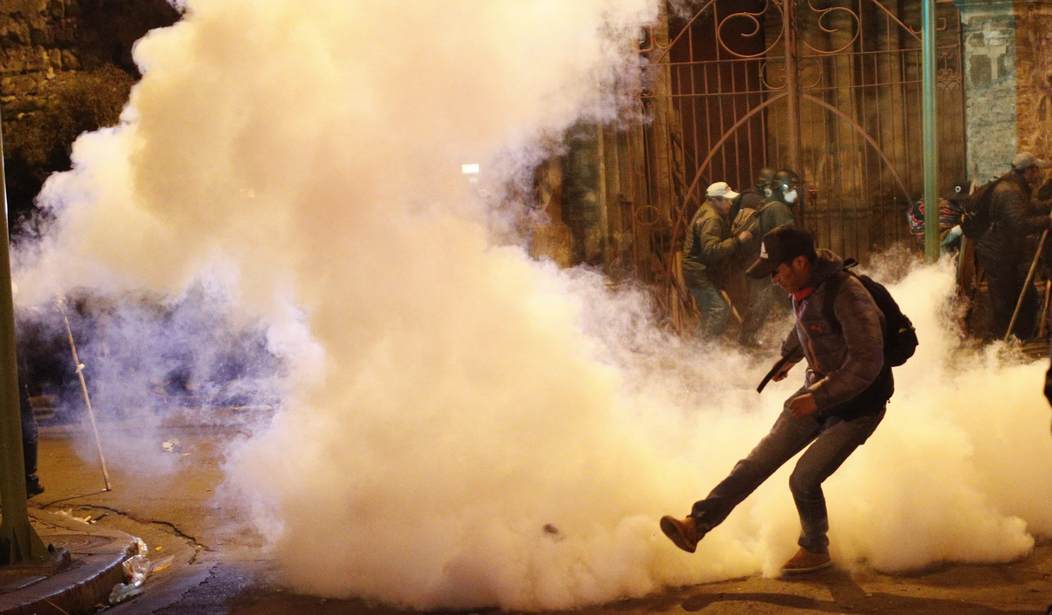Bolivia’s President Evo Morales called for new elections after the Organization of American States discovered “widespread irregularities” in the vote count from the election last month.
Probably not coincidentally, Morales announced his decision after Bolivian police abandoned their posts guarding the presidential palace to join the protests and the army said it wouldn’t “confront the people” during the crisis.
Morales said last week he would abide by the results of an audit of the vote count by the OAS. That audit concluded that it was statistically unlikely that Morales achieved the 10 percent margin of victory needed to avoid a runoff.
On election night, the results were showing that Morales would come up short of the 10 percent victory margin until inexplicably, the count was halted. After nearly 24 hours, the count was resumed and vote totals for Morales grew suspiciously.
The evidence found by OAS was a little more than “suspicious.”
In its preliminary report on Saturday, the OAS said it had found “clear manipulations” of Bolivia’s voting system and it could not verify the result of the 20 October race.
During the audit, it said it found physical records with alterations and forged signatures, and evidence of wide-scale data manipulation.
The international body concluded it was unlikely that Mr Morales had won by the 10% margin required for a victory. It recommended that a new electoral commission be set up before a fresh election could take place.
The result was predictable given that the election infrastructure is completely controlled by the Morales government. Even if Morales didn’t order the election rigging, his supporters almost certainly knew what to do to keep him in power.
Morales still might win, given that it was generally conceded that he was ahead on election night. But the electoral impact from the OAS charges may tighten the race considerably.
Morales may have been tempted to tell the OAS — and the political opposition — to forget about a new election, except both the police and the army deserted him.
In an escalation of protests on Saturday, opposition supporters overran two state-run media outlets in La Paz and forced them off air.
On the same day a number of uniformed police officers also joined crowds of demonstrators in several major cities.
Mr Morales condemned the seizure of the TV and radio stations, but Bolivia’s defence minister said there were no plans to deploy the military to quell the police “mutiny”.
Bolivia’s armed forces have also called for the crisis to be solved by democratic means.
Morales, Bolivia’s first indigenous president, has been in power since 2006 and there could be some fatigue on the part of voters. His popularity has been waning in recent years — even among the poverty-stricken masses who make up his strong base of support. Bolivia may be more than ready for a change.
Opposition leader, former President Carlos Mesa, promised to put an end to corruption and restore Democratic institutions that Morales had weakened. But Morales still holds sway over the indigenous people of Bolivia and they aren’t likely to give up on their hero yet.










Join the conversation as a VIP Member